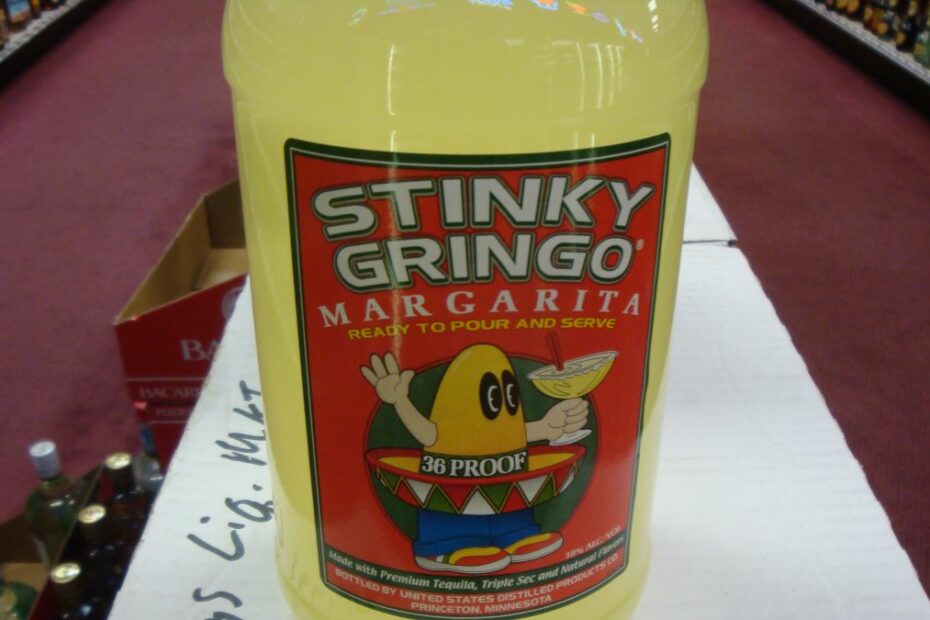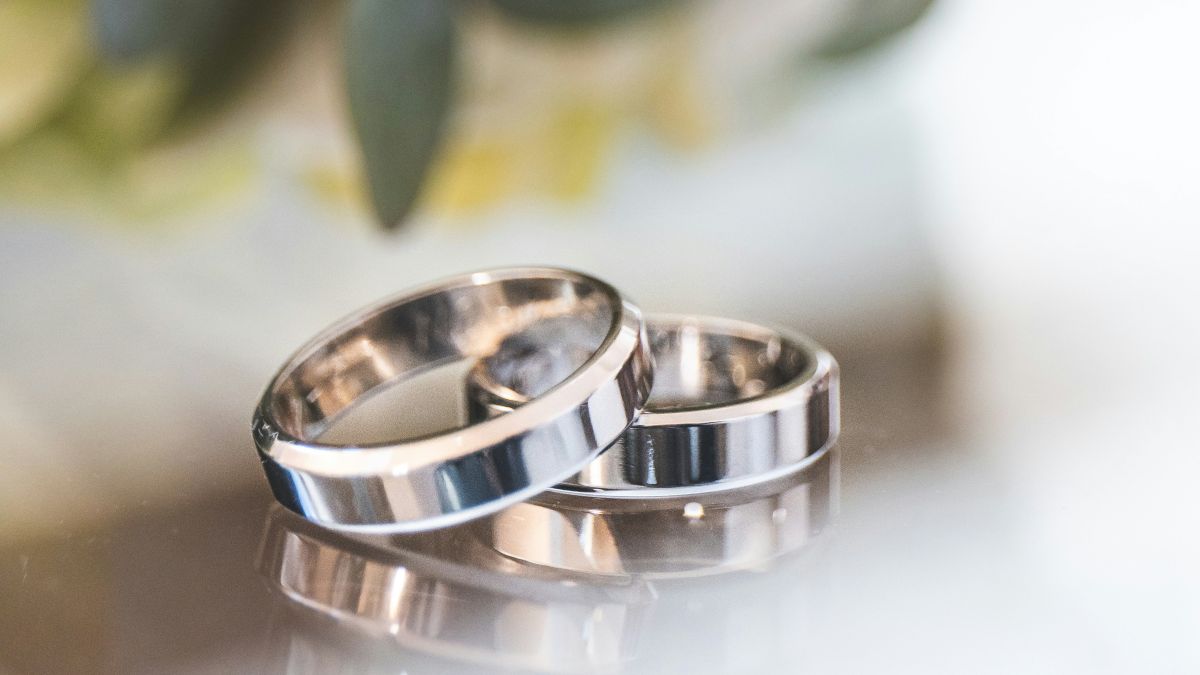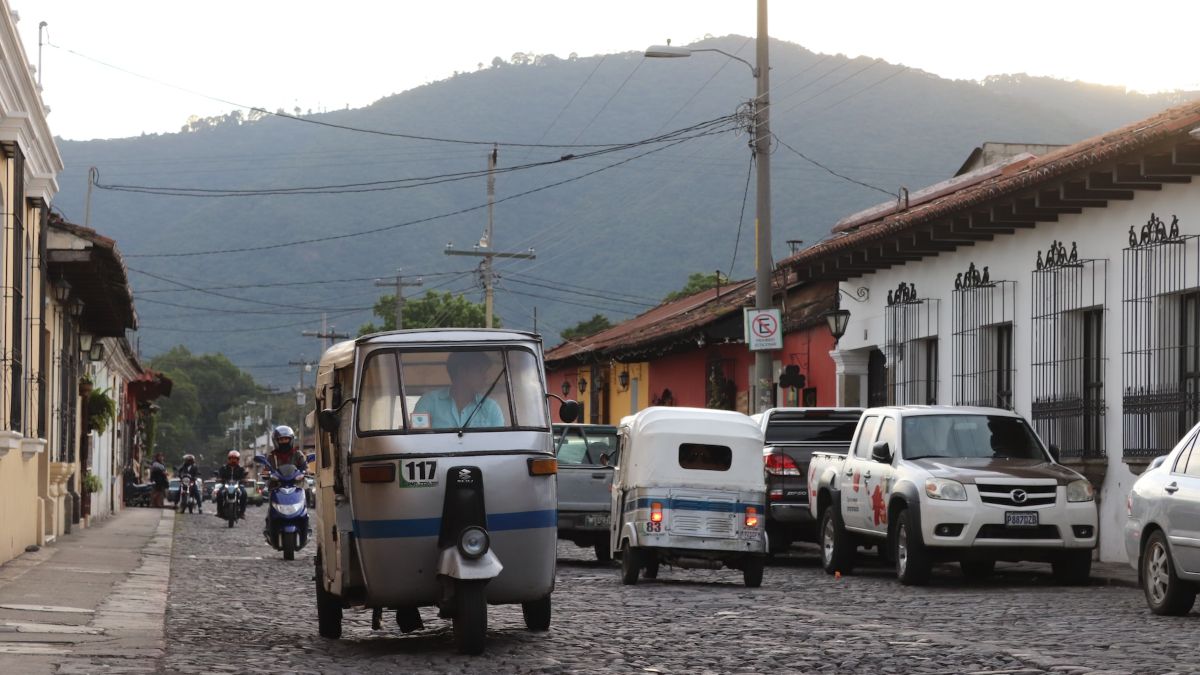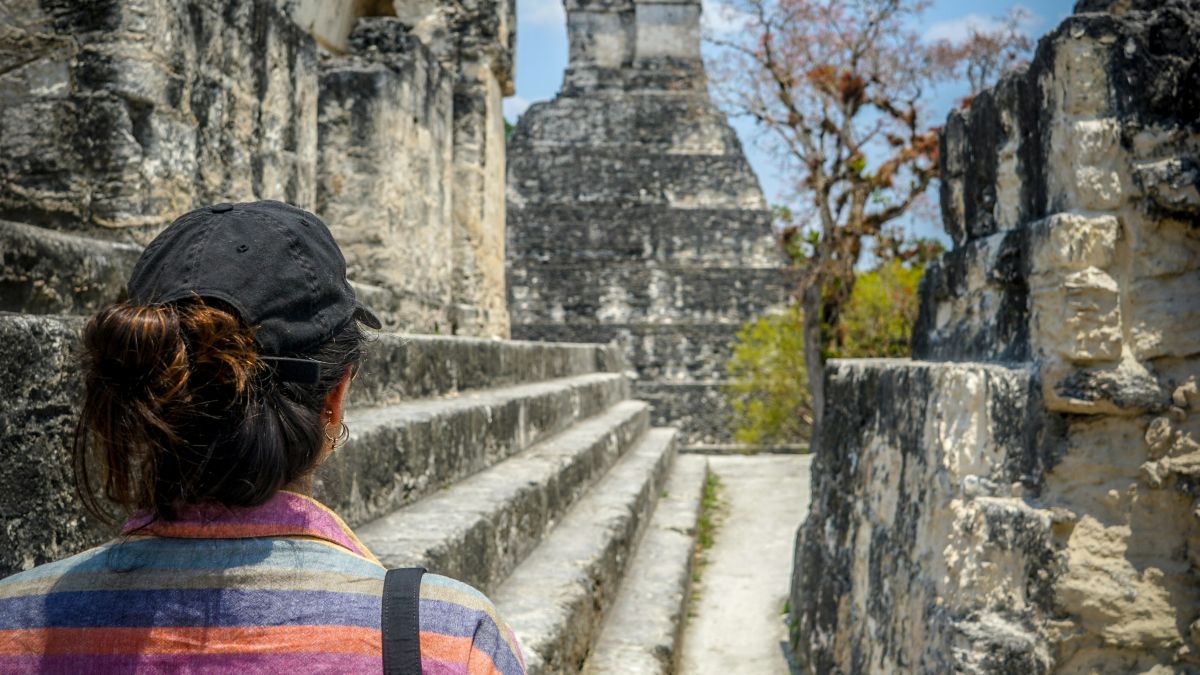Is ‘gringo’ offensive? Explore the historical, cultural, and linguistic aspects of the term to gain a comprehensive understanding. Read more to dive into the controversy.
One of the curious little quirks of life in Central America is the prevalence of nicknames. As a foreigner in this region, you will have one, and how offended you become by it depends on your general level of sensitivity.
If you’re reading this, there’s a chance the first thing that many Central Americans will refer to you as is “gringo”. If you’re a gringo-looking native English-speaker, that is. By gringo-looking, I guess I mean white, although that doesn’t work because there are plenty of black gringos, obviously. There are plenty of Latino gringos, too. Gringos come in all shapes and colors.
It kind of reminds me of Cheech Marin in the movie Dusk Til Dawn. You know, where’s he’s talking about all kinds of… well, this is a family website so go look it up on YouTube if you must. But it’s the same thing. “We got wet gringos, hairy gringos, stinky gringos…” You know the drill.
Point is, there are all kinds of gringos, and the only thing that makes a gringo a gringo is the perception you’re from the United States.
Note I said perception. That’s important, because pretty much any kind of western foreigner who doesn’t come from elsewhere in Latin America is a gringo by perception. And if you’re perceived to be a gringo, well, then it’s simpler to call you a gringo, especially if you can’t – or make no effort to – speak Spanish.
And that includes you, Canadians. Why is gringo offensive to you guys?
I say this because in all my years knocking around this part of the world, I’ve noticed that Canadians are often the most offended and appalled when called gringos. I get how they want no association with their noisy neighbors to the south, but you see how just much they don’t when you come to Central America. They feel insulted to be called a gringo. But if you’re Canadian, you’re a gringo. Get over it.
Same goes for my fellow Brits. We’re gringos too. We can huff and puff and be like, no, we’re like European, man! But you know who cares about that? No-one. You look like a gringo, gringo. Especially if you wear socks with your sandals and a Hawaiian shirt. And if you look gringo, then you’re a gringo.
It’s funny, because the origin of “gringo” comes from Spain. It means any foreigner, or at least anyone who doesn’t speak Spanish as a first language. “Gringo” derives from the word “griego” (Greek), so when someone speaks in a way you can’t understand, it’s like the English expression “it’s all Greek to me.” In fact, in 1787 the Diccionario castellano con las voces de Ciencias y Artes used the word to describe the Irish in Malaga, Spain. Go figure. The Irish, of all people, are the original gringos.
And here in Costa Rica, I know Irish people who don’t believe they’re gringos. They’re Europeans, man! Pfft.
Canadians are the gringos of gringos.
You remember if anyone used the word, chele, when talking to, or about, you?
— Eirik 🛰 (@HairyTutelary) April 11, 2023
That said, other gringo origin theories do exist.
I admit I like the Griego Theory because it dates from 1787. Age matters. But it would be churlish to not consider the other theories, even if the 1787 Griego Theory debunks them. After all, if you’re in Central or Latin America, you’re gonna hear them.
For example, there’s the Green Coat Theory. This theory proposes that the word “gringo” originated from the green uniforms worn by U.S. soldiers in the 1846-1848 Mexican-American War. As the soldiers arrived in Mexican territories, locals allegedly referred to them as “green-goes” due to their distinctive green uniforms. Over time, this term supposedly morphed into “gringo” and became a general descriptor for all foreigners.
The Griego-ingo Theory hypothesis suggests that “gringo” is a blend of “griego” (Greek) and the diminutive suffix “-ingo.” In this sense, it could be seen as a playful or mocking term coined by Spanish speakers to refer to foreigners.
We also mustn’t forget the Gran Gringo Theory. According to this one, the word “gringo” evolved from the Spanish phrase “gran gringo,” which translates to “great big gringo.” It’s believed this term was used in Mexico to describe tall, fair-skinned foreigners.
Lastly, there’s the Huelga Theory. This proposal suggests that “gringo” originated from the English phrase “green grow,” which might have been used by English-speaking workers during labor strikes in Latin America. The phrase “green grow” could have been misheard and eventually transformed into “gringo” by Spanish speakers.
Again, you should really ignore these other theories. It’s worth knowing they’re out there, though.
It was first recorded in Spain, in a 1787 dictionary.
“GRINGOS: what foreigners are called in Malaga if they have a certain accent that keeps them from speaking Spanish easily and naturally; in Madrid they use the same name, and for the same reason, mainly for the Irish.”
3/
— David Bowles (@DavidOBowles) June 1, 2019
But in Central America, gringo doesn’t mean “any foreigner”, as it did in Spain back in 1787.
A group of Japanese tourists, for example, aren’t gringos. They’re “chinos”. Gringo means gringo. Gringo means they think you’re from the United States but don’t care either way, as Canada and the UK and Ireland are all the same thing, right?
Outside of Canadians, Brits, Irish, and whoever else, no-one takes offense about being called a gringo down here. It’s just a nickname, nothing else. I’ve seen a few people pissed off about it, but it takes some hardcore sensitivity (not to mention a lack of cultural understanding) to worry too much about it.
It’s not a derogatory term at all. Unless it is, and then you’ll know it. Usually by the word “hijueputa” spoken before “gringo” by the person addressing you.
Another term for gringos is “chele”. Nicaraguans particularly use this, and it means “white” or “milk”, which is why it works for us pasty northerners. In fairness, chele means white-skinned person, thus the perception of gringo. But many white-skinned Nicaraguans and other Latinos also get called chele. Again, not an insult, at least not in Nicaragua.
You might see a pattern emerging here. Nicknames are about how you look in this part of the world. If you look like a gringo, you’re a gringo. If you look white and pasty, you’re a chele.
In Central America – in Latin America – there are none of the reservations we have about this in North America or Europe. I still don’t know if that’s a good or a bad thing.
In Nicaragua, we don’t call a white or light skinned person “white” we say “chele” and i think that’s beautiful
— 18 🦋 (@vanessabreness) April 17, 2020
It used to shock me hearing people all over Central America openly call others “negros” or “chinos” or “indios” or whatever. That wouldn’t fly in my country.
An example is the Uruguayan football (soccer) star Luis Suarez. You might know him as that gifted but flawed player who liked to get handy with his teeth and bite opposing players.
In 2011 he played for Liverpool FC in the English Premier League. During that 2011/12 season, in a game against Manchester United, Suarez got into it with then-United captain Patrice Evra. Evra, a Frenchman, accused Suarez of racially abusing him during their confrontation, an accusation Suarez denied.
Suarez said he was speaking in Spanish to Evra and referred to him as “negro” (or “negrito“), something that everyone does all over Latin America. He said he was no way racially abusing Evra.
Was Suarez being racist to Evra or not? I don’t know. Only Suarez knows that. But he was correct in saying that what he said was common all over Latin America and not used as a racial slur, more of a nickname. In fact, a few years later, in 2020, fellow Uruguayan footballer Edison Cavani also got into trouble when he used the word “negrito” in a social media post.
Evra didn’t believe a word of this. Neither did the English Football Association who fined him the equivalent of over $51,000 and banned him for eight games. A classic case of culture clash?
As someone who lives in Latin America, I’m inclined to believe Suarez here. But for anyone not familiar with the nickname culture in this part of the world, I can see how shocking it is. One thing that should be pointed out is that although 2011 was Suarez’s first year living in England, he’d already been in Europe since 2006, playing in the Netherlands. There’s a strong argument that after five years in Europe, he should have known that Latin cultural norms don’t fly across the Atlantic. So there’s that.
It’s ten years since Luis Suarez addressed Patrice Evra as “negro” at Anfield. Revisiting that ugly episode: linguistic debates, contradictions, inflammatory statements, those Suarez T-shirts and all #LFC #MUFC https://t.co/4Ni79PUKQb
— Oliver Kay (@OliverKay) October 15, 2021
I mentioned “chinos” earlier.
That used to shock me as much as “negro”. If I went on the streets of Soho, the center of London’s Chinese community, and called any random person a “Chinaman”, I’d get a smack in the face. But here, it’s common. In fact, it’s common to call anyone from east or southeast Asia “chino”, no matter if you’re Japanese, Korean, Vietnamese, or whatever.
Should Japanese/Korean/Vietnamese people take offense? Should Chinese people take offense? I don’t know. Is it the same question as asking if I should take offense at gringo? Is gringo offensive to me?
All I know is that the person calling you gringo or chino more than likely intends no offense. But does that make it okay?
And then there’s the body shaming.
In the US or Canada or Europe, you’re not allowed to identify someone by their weight anymore. You can’t call someone fat or thin. But in Central America, that’s standard operating procedure. “Gordo” (fat) and “flaca” (thin/skinny) are acceptable nicknames to call someone to their faces even if you’ve only just met them and don’t know them.
I remember years back I used to run 10k races and half-marathons all around San Jose. I like running, it keeps me fit and helps me lose weight. Back then I had a chunk of weight to lose. I’m talking around 2008, 2009, in there.
There used to be a photographer who took pictures at these 10k races. He’d photograph the competitors at one race and then sell the prints at the next one. He attended every race.
One time I was warming up before a race and the photographer yelled at me across the street to come over and see him because he had a photo of me running the previous race. Now this guy didn’t know my name so to get my attention he yelled, “Venga gordo! Venga macho!” That means “Come here fatty! Come here whitey!” “Macho” is kind of like “chele” in Costa Rica. It’s not an expression of manliness, it’s an expression of whiteness.
I went over, shook his hand, and bought the photo. Should I have felt offended? In the US or UK, sure. Here in Costa Rica, no way. If he hadn’t caught my attention with gordo or macho, he might well have even dropped the g-word on me.
Not an excuse but I lived in Central America for 8 years. This is not uncommon. I had blonde hair and called macha, flaca for those that are super skinny, chino for those of Asian ancestry, gordo if overweight. These are common nicknames and I encountered them daily.
— Agirlhasnoname (@girl_hasnoname1) November 6, 2022
Nicknames are so ubiquitous in Central America, it’s almost impossible to be offended by them.
Every country in the region has nicknames for themselves, too. It’s not only about labelling others.
Costa Ricans are Ticos because of the national propensity to add a diminutive to words, to make them sound cute. “Comida” becomes “comidita” or “perro” becomes “perrito”, for example. Ticos are proud of their nickname and think of it as part of their cultural heritage. A male Costa Rican is a Tico, and a female is a Tica (perhaps one day, in some special kind of hellish world, we’ll all have to say ticx). It is no way a slur unless it’s from a Nicaraguan with that word again “hijueputa” added to the front (only joking…. kind of).
Nicaraguans, for their part, call themselves “Nicas“. This is short for Nicaraguan and has no racial bias. I see many expats and foreigners say Nica is female and Nico is male, like the Tico/Tica thing. That is not true. Everyone is Nica. Other expats say Nica is an offensive slur. It might be because the word sounds like another offensive racial slur in the English language beginning with the same letter. Or maybe in Costa Rica, it often is a slur because of the general mistrust and dislike many Ticos have for Nicaraguans. But for Nicaraguans themselves, in Nicaragua, they’re “100% Nica como gallo pinto!”
Same in Panama. There’s not so much of the proud nickname thing going on here like elsewhere, but Panamanians call themselves “Panas”, like Nicas say “Nicas“. “Canalero” is another Panamanian way of identifying with themselves.
Hondurans are “catrachos” and this one is a source of real pride, like with Ticos. It derives from the Honduran general Xatruch who defeated William Walker in the 1850s. Another term from the William Walker days is “guanaco” for Salvadorans, because of the Salvadoran army meeting under guanacaste trees. Guanaco is sometimes seen as an insult in El Salvador, though, depending on who’s using it and how.
Chapin is far less controversial than guanaco and is a source of pride in Guatemala. If you’re Guatemalan, you’re a “Chapín”. It comes from an old shoe that Guatemalans used to wear and you’ll see the word all over the place like you’ll see Tico everywhere in Costa Rica.
Even Belize has its nickname for its people. I say “even” because Belize is an English-speaking country. It doesn’t really share the Latin propensity to call everyone anything except for their own names. But if you hear anyone refer to themselves as a “Jewelizean”, you know they’re from Belize. Belize’s nickname as a country is “The Jewel” so it comes from that.
Getting to grips with Spanish in Central America means getting to grips with some of the slang and unique phrases you’ll hear around the region. Here are some of our favorites. https://t.co/2QrIZzHGRp
— Central America Living (@VidaAmerica) May 26, 2022
So it turns out that everyone and everything has a nickname here in Central America.
If you’re easily offended, you might need to work on that before you come down. If you’re fat, white, black, skinny, bald, hairy, gay, ginger, blonde, Asian, wear glasses, or whatever, people will call you out on it.
I’m a white, bald, gringo with glasses. I’ve made my peace with that. Can you do the same? Is gringo offensive to you? It really shouldn’t be. You should embrace it, in fact. Take it as a nickname, a term of endearment, or indifference. Just know it doesn’t carry the same weight as it does in North America or Europe.
James Dyde is the editor of CentralAmerica.com. He lives in Escazu, Costa Rica.




